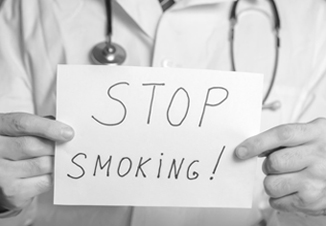 NYC plastic surgeons offer a wide range of cosmetic procedures to help men and women achieve their aesthetic goals. During the plastic surgery consultation, patients are given a list of dos and don’ts. One of the general recommendations for plastic surgery is to stop smoking.
NYC plastic surgeons offer a wide range of cosmetic procedures to help men and women achieve their aesthetic goals. During the plastic surgery consultation, patients are given a list of dos and don’ts. One of the general recommendations for plastic surgery is to stop smoking.
Why is it important to quit smoking before the procedure? The reason is that smoking can interfere with the efficiency of the treatment, the healing process, and outcome. Surgeons generally tell patients to stop smoking at least a few weeks before and after the surgery.
Smokers generally have more mucus production and reactivity of their airways, which would cause coughing in the post-operative period. Proper blood supply is a major concern during any surgical procedure and it would be compromised for those who smoke. Smoking introduces carbon monoxide into your system which robs the tissues of oxygen. Good wound healing is all about getting enough blood supply to the area. Nicotine is a major vasoconstrictor that prevents smooth healing. Those who smoke have longer healing time, worsened scars, and more complications.
Not smoking contributes to successful surgery with a much lower risk of complications. This is really important for procedures such as breast augmentation. The reason is that the treatment comes with a higher risk of complications such as infection and capsular contracture in addition to general complications such as blood clots, and anesthetic problems such as pneumonia.
For these reasons and more, plastic surgeons advise patients to quit smoking at least 2 weeks before the surgery and 3 weeks following the treatment. The specific information and recommendations given to patients would depend on their medical status, the type of operation they are having, and their age.
Surgeons provide comprehensive pre- and post-operative instructions and following them is crucial for smooth recovery and optimal results. Other lifestyle changes that your surgeon may recommend will relate to diet, exercise, and weight management.
